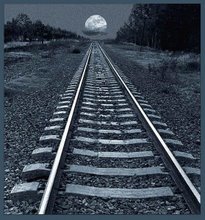(I did, in fact, write this over the weekend. Interesting, however, that it kinda fits into the class discussions...)
In a momentary Musing, I wrote these words: “The only thing that is worse than thinking that you are going to Hell (somday) is being Bad because you are creating and living Hell.”
I’m not a very religious person, barely spiritual anymore. Honestly, I figure that if there is a ‘god’, it is energy -- never beginning, never ending, simply keeps changing forms. I highly doubt that energy is consciously omnipotent, monitoring and judging and such. I think this is why the idea of Karma struck a chord for me. I borrow the following from a different paper I wrote:
Easwaran explains that "...every act or thought has consequences, which themselves will have consequences; life is the most intricate web of interconnections. ... Literally, karma means 'something that is done.' Often it can be translated as 'deed' or 'action.' The law of karma states simply that every event is both a cause and effect. Every act has consequences of a similar kind, which in turn have further consequences and so on; every act, every karma, is also the consequence of some previous karma" (xxvii-iii). Karma is not induced by an outside authority figure (God), but is of the physical realm, caused by and kept in motion by people’s actions. The point, then, is to learn to restrain one's reactionary emotions -- by learning to overcome anger, one stops the flow of karmic kickbacks.
To the point: I don’t know that there is an afterlife -- I only know this life, physical, mortal, ever-changing. I know that with each action, and each reaction, I, along with everyone else, create this life, and live this life. So whatever actions and reactions I choose will continue to affect me, and those around me. Thus, it behooves me to choose the best actions and reactions to the best of my ability. (And, of course, in the process of striving for good, one realizes one's inconsistency, one's akrasia. This is the major unseen obstacle, methinks.)
((Work Cited: Easwaran, Eknath. Intro. and Trans. The Baghavad Gita. New York: Vintage Books, 2000. ))
Monday, April 9, 2007
Subscribe to:
Post Comments (Atom)





1 comment:
Of course, we can't choose the unintended consequences of our actions!
Post a Comment